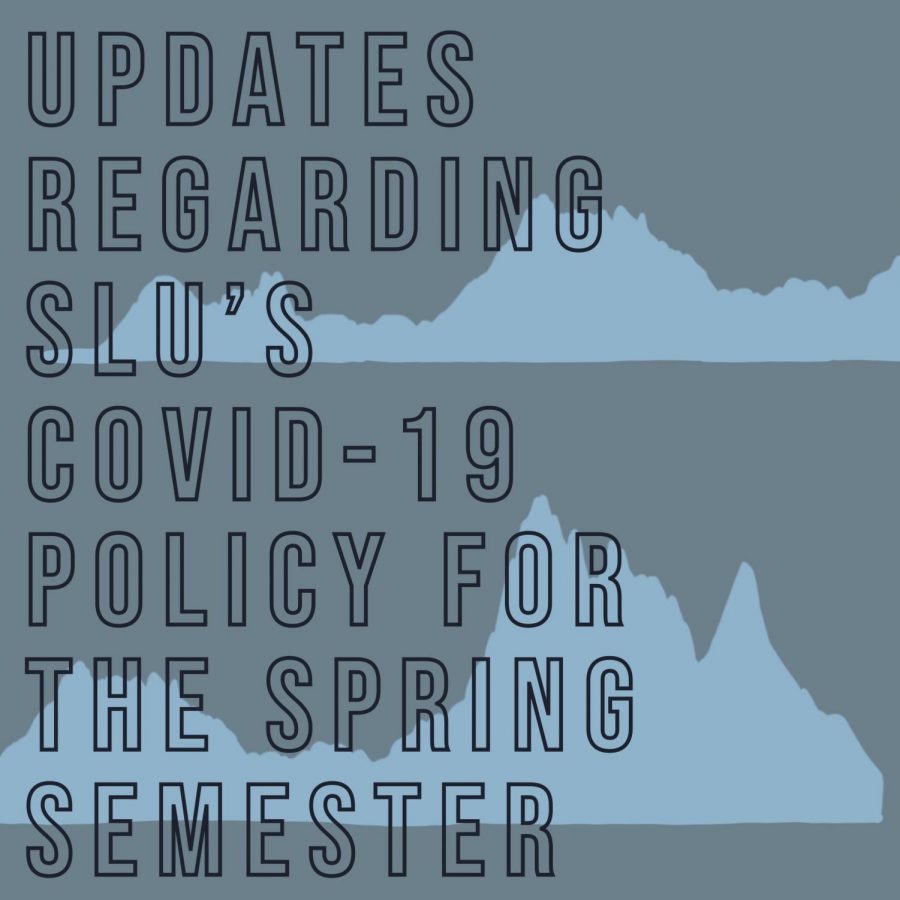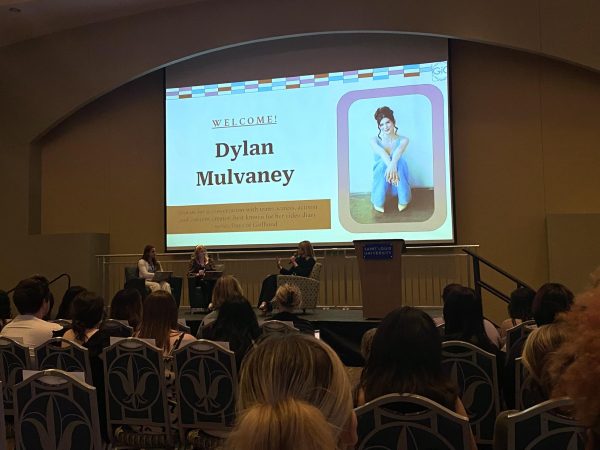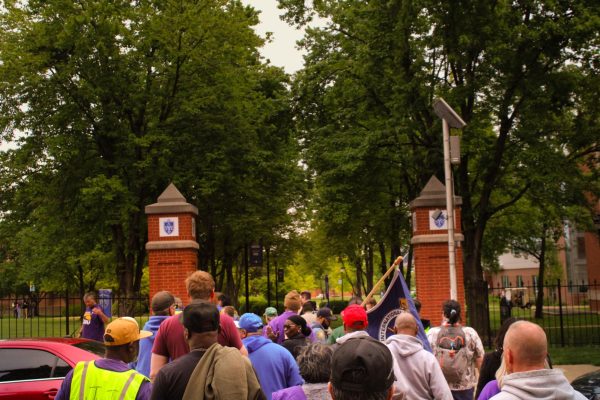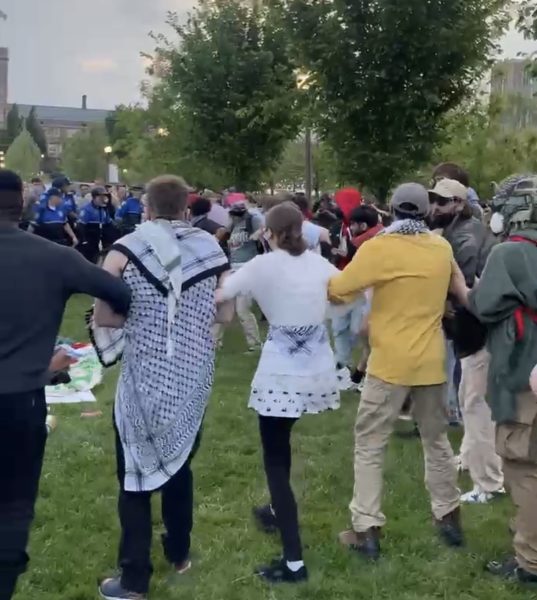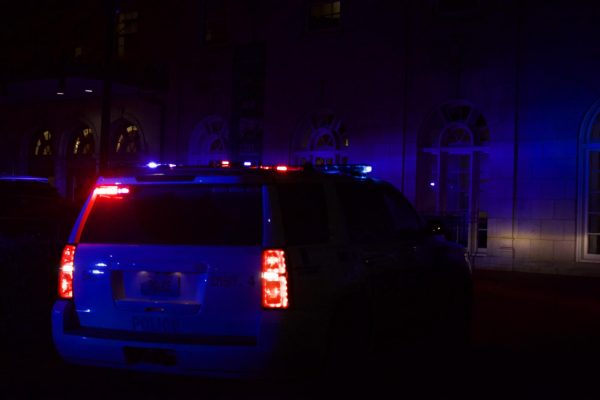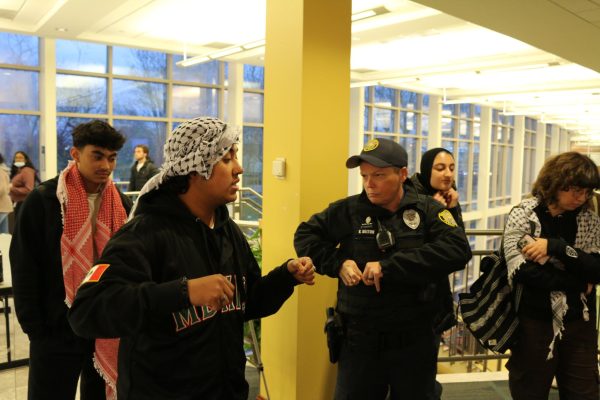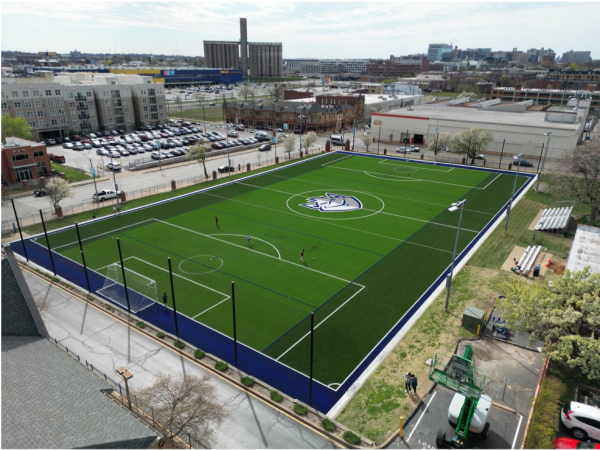Updates Regarding SLU’s COVID-19 Policy for the Spring Semester
In spite of much concern and doubt, Saint Louis University managed to maintain an in-person semester for the entire fall 2020 semester; an impressive feat considering how some other universities had to remain virtual. The opinion amongst students and faculty seemed to be mostly positive, with The University News interviewing several of them for last year’s article, “How Did SLU Handle COVID-19 This Fall Semester?” In a message released during November of last year, the SLU Division of Student Development revealed that campus stakeholders would be reviewing SLU’s COVID-19 plan as well as making alterations to the plan for the spring 2021 semester.
Much has changed since the end of the fall semester: new mutated variants of COVID-19 have emerged in regions like the United Kingdom, a new administration under President Joe Biden with a new strategy of handling COVID-19 and new vaccines courtesy of medical companies like Moderna and Pfizer-BioNTech have been approved and distributed. This has also been compounded by new COVID-19 research in general and the airing of student grievances from the previous semester, like a lack of community events. The UNews reached out to Dr. Terri Rebmann, Ph.D., Director for the Institute for Biosecurity and Special Assistant to the President, as well as Dr. Debra Lohe, the interim vice president of student development.
When discussing the primary takeaways from SLU’s COVID-19 policy last semester, one of the most important seemed to be that disease transmission within classroom and lab settings was not an issue. “The interventions and mitigation strategies we put in place are working in our classrooms,” Rebmann shared, “what we need to focus on is changing behavior so that students aren’t violating the public health mitigation strategies when they are outside the classroom.” Lohe also revealed that communication was a strong point for the university, “The provost’s office, the president’s office, my office—there was a lot of communication. Sometimes more than what people wanted, but at the very least, they couldn’t say we weren’t telling them stuff.”
As for changes that students can expect for this school year, there will be more events this spring semester. “We’re gonna allow student organizations the ability to propose an indoor event this spring,” Lohe revealed. “We’ve got a very small subset of spaces that are set up for socially distanced classrooms, that are really event spaces that we can bring online—just on Fridays and Saturdays, one event a piece—and student organizations can pitch ideas.” Lohe also said that outdoor activities in reserved spaces will be permitted, albeit at a low frequency to prevent the custodial staff from over-exposure, reminding that “they are often folks on our campus who are in the most vulnerable communities for COVID-19.”
Regarding other areas, Rebmann said that SLU’s plan is being continuously updated alongside guidance released by both local and federal public health officials, and “when the CDC makes recommendation changes, we incorporate those into our plans.”
SLU officials are also monitoring the situation with the mutated COVID-19 strains carefully. “At the state level, the state is monitoring a certain percentage of the COVID-19 samples to see if they consist of one of these new variants, so we have a general idea about whether these new variants are in our state and the extent to which it is in our state,” Rebmann shared. “We are also looking at what are possible mitigation strategies that might need to be updated if we do see evidence if one of those new strains is in the St. Louis region or affecting our campus.” Currently, there have been no new recommendations of altering current mitigation strategies for the mutated strains from either local officials or the CDC, though Rebmann notes that this is subject to change in the future.
As for the new presidential administration, the direct effects of the new national COVID-19 strategy have not been felt yet by SLU, though Rebmann anticipates that they will be felt soon as more COVID-19 vaccines become available. With the COVID-19 vaccine being a massive part of the Biden administration’s pandemic response plan, Rebmann anticipates that the growing production of COVID-19 vaccines, “will make more individuals eligible to be vaccinated, and we will then be able to vaccinate more of our community members on campus.”
COVID-19 vaccines were perhaps the biggest development since the end of the fall 2020 semester, and as of now, some SLU students are eligible to receive them now. According to Rebmann, “almost all of our health care students who are in clinical settings have currently already been or should have been offered vaccines.” Rebmann also said that SLU is a state-approved provider for the COVID-19 vaccine and should be receiving more of the vaccine soon to distribute to SLU members currently eligible, as well as that once more vaccines are produced, vaccination for additional phases would available, with it being highly encouraged that students who are not already eligible to receive the vaccine.
As for how vaccines would affect campus life, Lohe stated that if the country reaches herd immunity, then the University would start the process of getting back to normal. Unfortunately for SLU students, Lohe is confident that, “we’re not gonna get there [herd immunity] this Spring.”
Your donation will support the student journalists of Saint Louis University. Your contribution will help us cover our annual website hosting costs.



